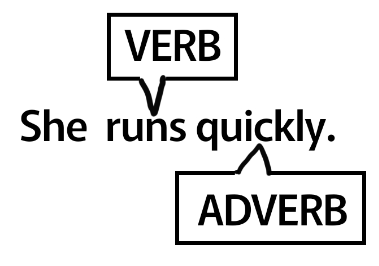An adverb is a part of speech in the English language that modifies or describes verbs, adjectives, other adverbs, or entire sentences. Adverbs often answer questions such as "how," "when," "where," "why," or "to what extent" about the word they are modifying.
For example, in the sentence "She runs quickly," the adverb "quickly" modifies the verb "runs" by describing how she runs. In the sentence "He spoke softly," the adverb "softly" modifies the verb "spoke" by describing how he spoke. In the sentence "They live here," the adverb "here" modifies the verb "live" by describing where they live.
Adverbs can be formed from adjectives by adding the suffix "-ly," such as "happy" becoming "happily," but not all adverbs end in "-ly." Some examples of adverbs that do not end in "-ly" include "soon," "now," "well," "often," and "very."




I also find it helpful to read things like this. A little reinforcement is always a good thing.
Thank you Jim. I agree. Your comment made me want to write more. I'm new to substack... I opened an account a while ago but. never used it. Substack is great. -Elliot